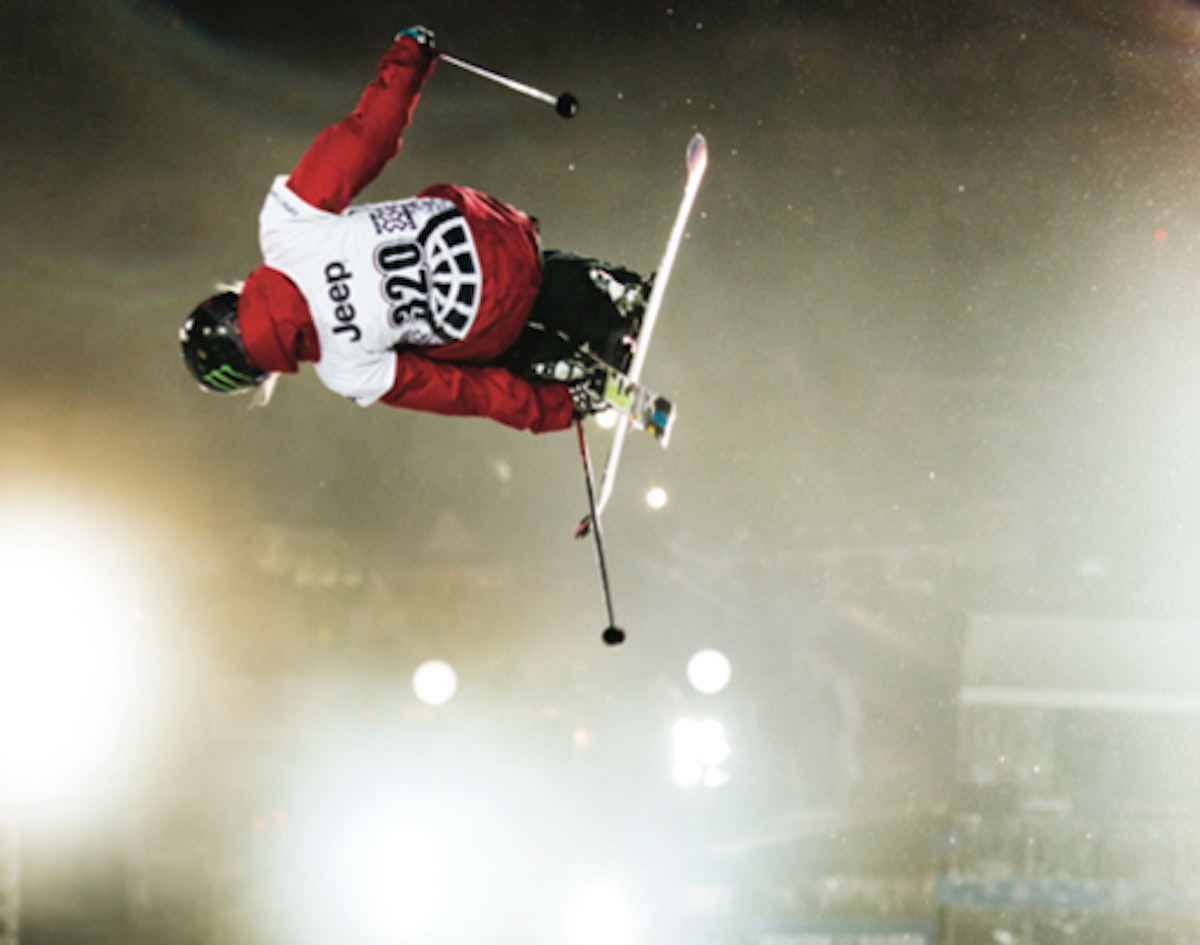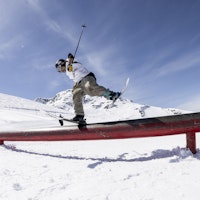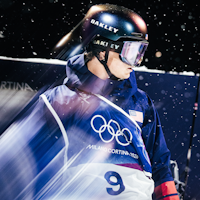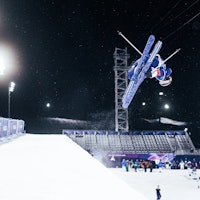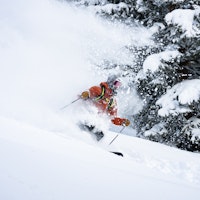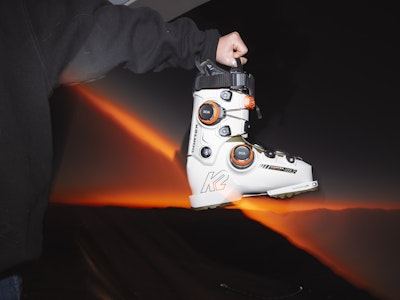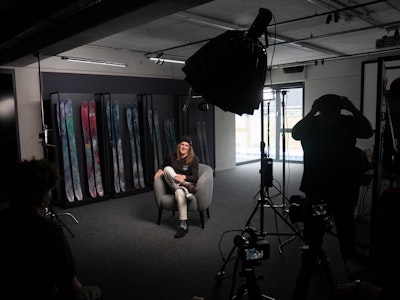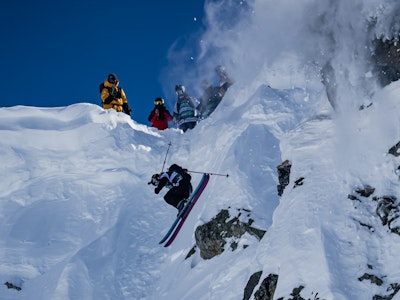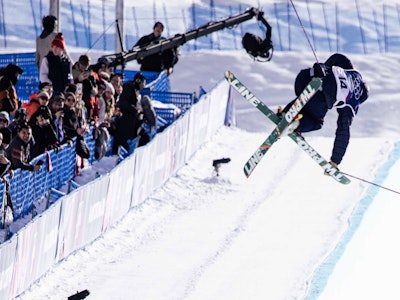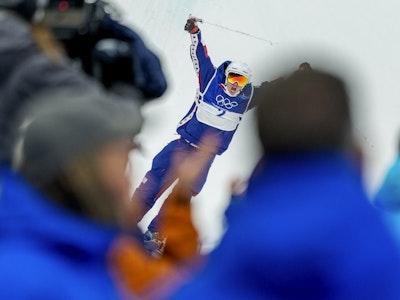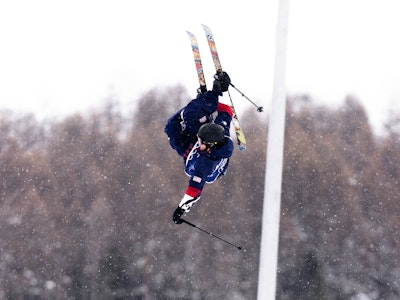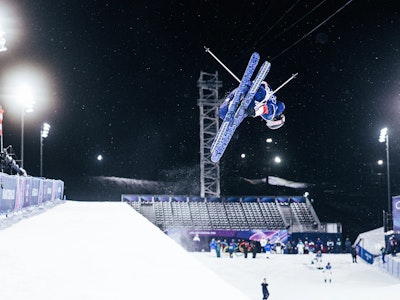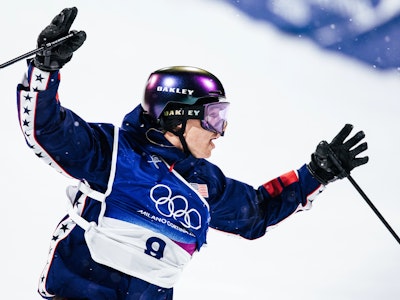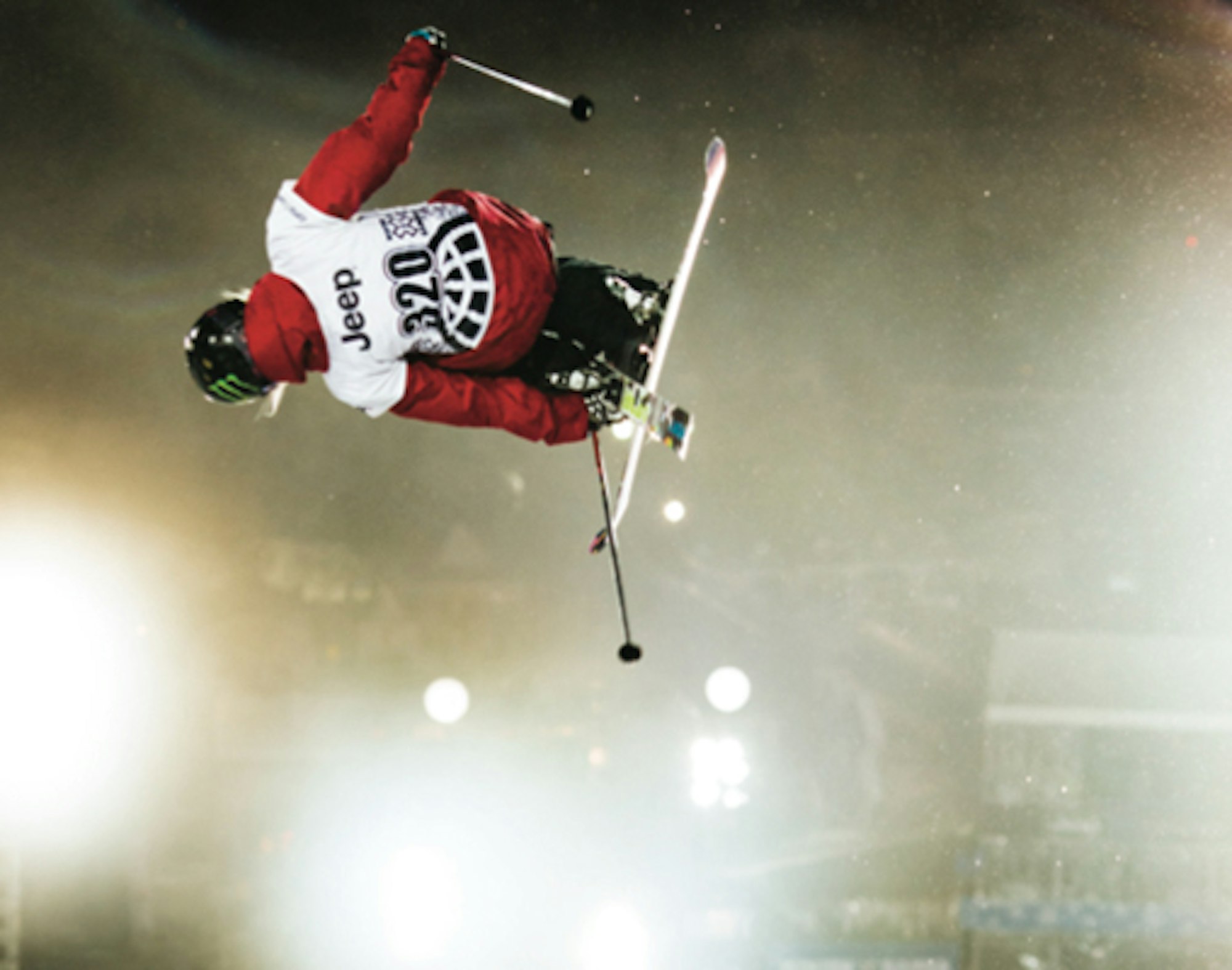By Christopher Jerard
Sarah Burke was a leader, innovator and inspiration by the time she was 17 years old. By 20, she was one of the most well-established icons in our sport, male or female. Before she had a single X Games medal—because the girls were not yet included in the X Games—she was already a household name.
But the state of affairs in women’s freeskiing did not sit well with Sarah. No X Games? She wanted to change things, not just collect a check after winning a smaller contest. So she led a group of girls who pushed beyond the realms of filming and media attention in an effort to be included alongside the guys in the top-level events.
When I was the publisher of Freeskier, Sarah would call or email the office regularly with her updates on women’s skiing and how the magazine should have been doing more to help advance opportunities for girls. She was always charming, informed and so incredibly persistent and persuasive—and disarming with her total lack of selfishness. The discussion was never about her in the X Games, it was always about her peers and the necessity of holding legitimate top- level competitions for girls. Frankly, it is extremely rare to receive a call from an athlete lobbying for other athletes or for a larger vision. That was Sarah.
Chris Schuster, president of the Association of Freeskiing Professionals and longtime X Games ski organizer, was also at the receiving end of these calls. “At that time, there were still just a few events out there that had a women’s comp, and at some of the other events Sarah would just compete with the guys,” he says. “And if she couldn’t compete, she would still come to the events to support the guys and to talk to the promoters to make sure we understood that she was serious. She was relentless, in a good way.”
Her husband, Rory Bushfield, agrees that she was persuasive and amiable at the same time, “She always had the perfect wording for things. She’d make you see from another perspective. It wasn’t manipulative in any way. No put down in her words. But she could convince you that you were wrong without making it feel wrong. And [laughs] you’d happily be wrong with Sarah.”
Sarah’s friends and fellow athletes pushed too, but just like on the hill, they followed her. Even if they didn’t realize it at first. Schuster remembers Sarah and her cohorts capturing attention at an X Games exhibition, “In 2004, we had the girls at Winter X for a demo event. Sarah provided me with the names of a handful of the top women riders in the world and they came to Aspen to prove they deserved a full-on comp. It was added the next year in 2005. From that year on, Sarah was my go-to person for anything women’s freeskiing (and men’s for that matter).” Sarah had begun contacting Schuster to get a women’s comp at Winter X, but only a few years later, it was Schuster contacting Sarah to get some “honest feedback and insight.”
Sarah was one of skiing’s biggest non-Olympic stars, but deep down, she wanted to be an Olympian. Her coach, Trennon Paynter, comments, “She always wanted to see the sport in the Olympics, and she wanted to go. Gord [Sarah’s father] often told me, from way, way, way back, when someone would ask her, ‘What are you going to do when you grow up?’ she would say, ‘I’m going to go to the Olympics!’”
When rumors about including halfpipe in the Olympics started surfacing after the Salt Lake City Olympics in 2002, “She fought for it, man,” says Bushfield. “It was a life goal for Sarah. She wanted to be an Olympian. There was even a season, before [halfpipe skiing] got in, that she was trying to learn to snowboard to go. She could have done that too.”
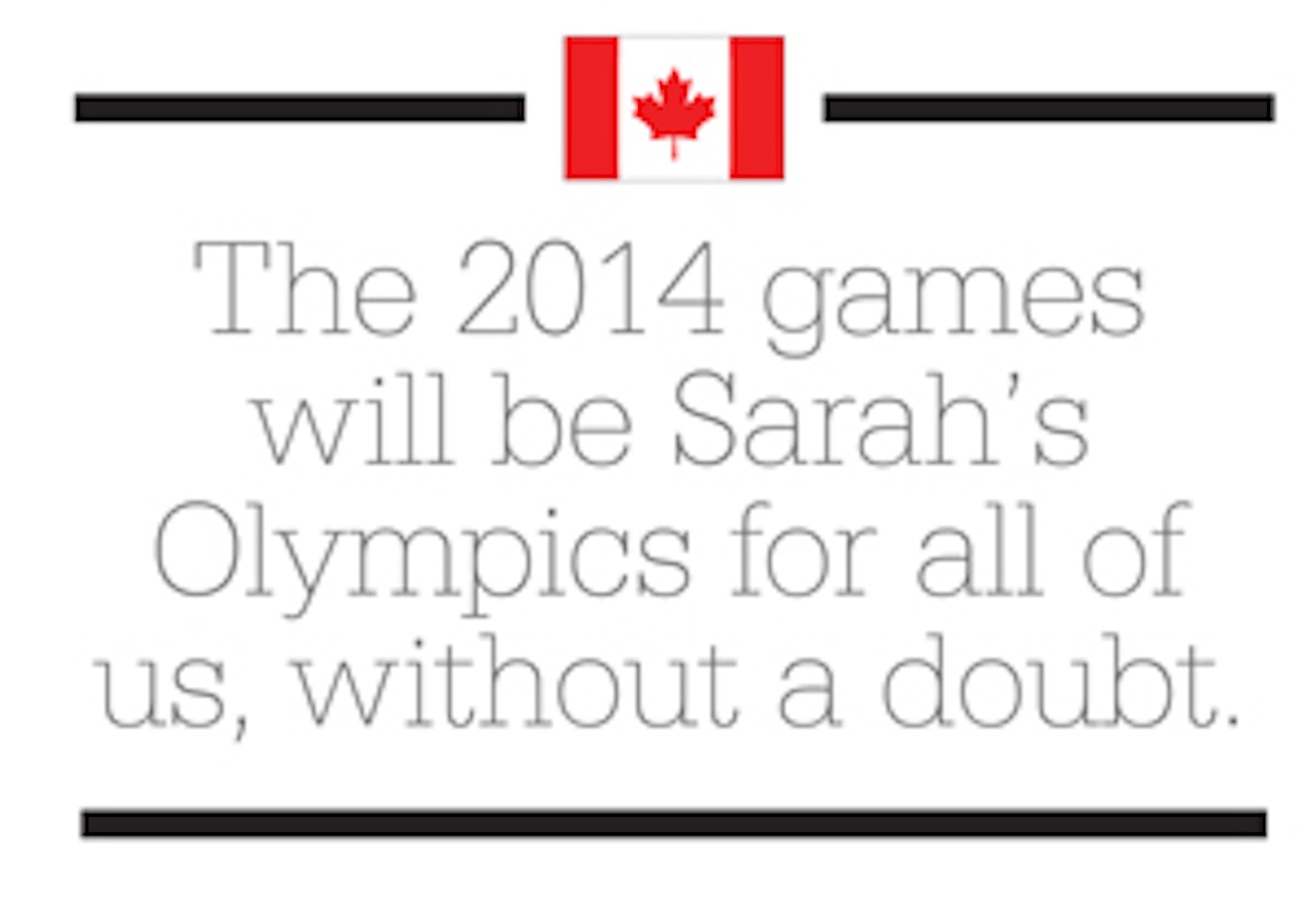
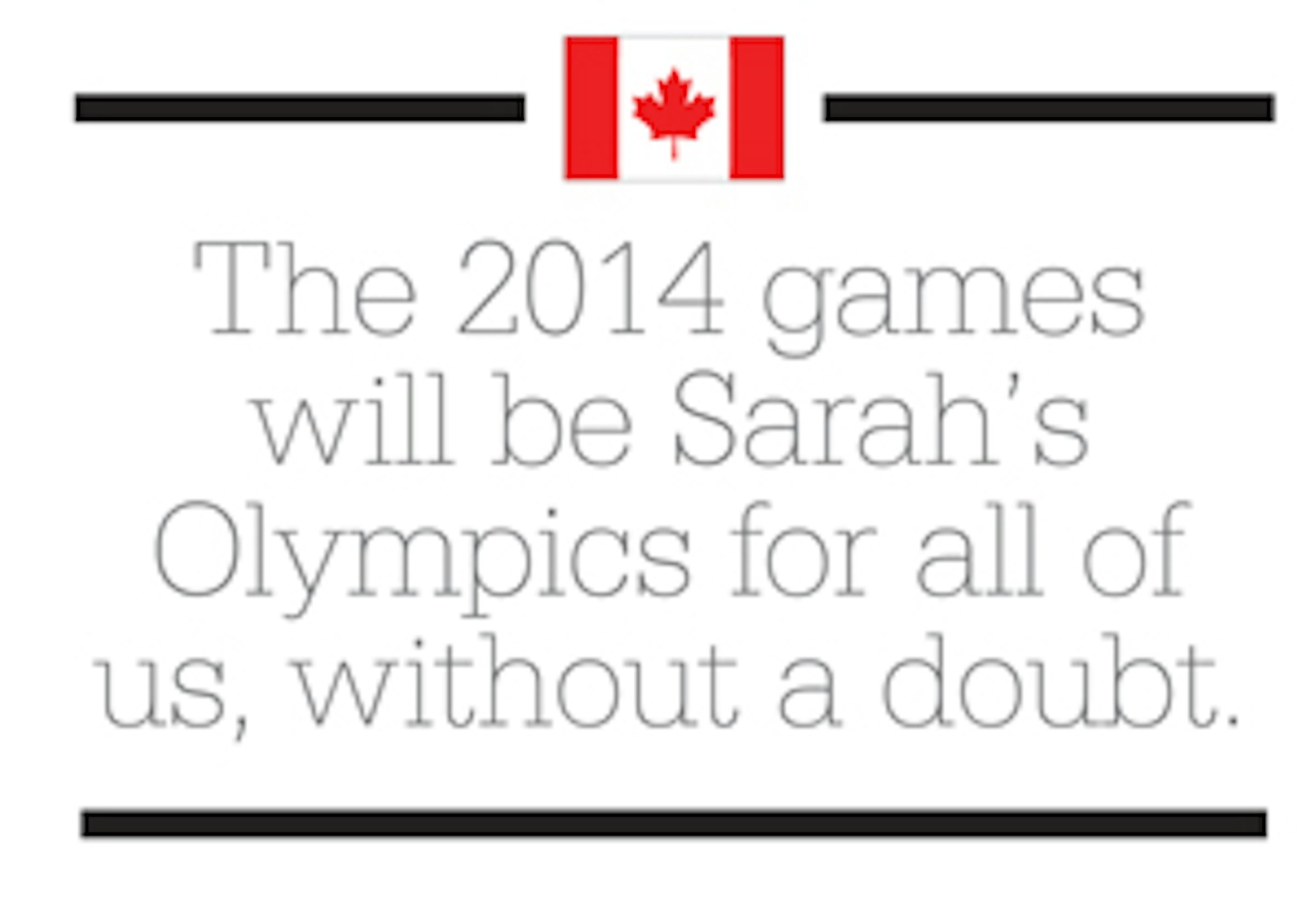
Sarah’s agent and AFP co-founder Michael Spencer agrees. “The fact that we got [halfpipe] in for 2014 has a lot to do with Sarah,” he says. “First, her dominance. She was so dominant, she made the world watch. People knew who she was even if they did not ski, and this made the Olympic committee realize there might be something there. Second, she had already succeeded at getting girls in the X Games. She used that as inspiration to start talking to the right people to get the sport into the Olympics. She was a founding board member of the AFP, and the AFP used her influence to talk to the right people and work the cause. We couldn’t have done it without Sarah.”
Along the way, Sarah’s Olympic vision and competitive drive was undeterred, even in the face of disappointments. The 2010 IOC decision to deny halfpipe in Vancouver stands out. “She was upset,” explains Paynter. “We were all very upset. More than anything, we all knew it should have been in the Olympics, and we all knew it would be in eventually. It was frustrating for everyone, especially for Sarah. There were questions for her after that, ‘Do I really want to keep going? I’ve been doing this for 10 plus years. Do I want to go another six?’ Sarah was all about, ‘How can I change it? How do we get it in?’ Just 20 minutes away from the Olympic pipe in her hometown, definitely the favorite at that time, coming off all the titles at the time… that was a bitch.”
But of course, Sarah took the high road and found a way to smile through the disappointment.
“I know it was harder on her than she would have ever let show, but that is why Sarah was so special,” says Spencer. “She could still celebrate a friend’s victory [Torah Bright] and never show any bitterness that she should have been there too. She also knew she was getting older, so 2014 was it for her. That is the most frustrating. You dominate a sport, finally after eight years it gets in and you have missed the chance to be in three or four games. Not fair for someone who most likely could have won two or three gold medals.”
Some of Sarah’s closest friends attest to how focused she had become for 2014—her dream of being an Olympian so close to becoming a reality. Paynter recounts stories of how she was turning down sponsor engagements, Hollywood appearances and starting to say no to huge opportunities with a giggle and a smile, something she had never been great at in the past. She was always stretching herself thin, never wanting to disappoint and trying to accommodate all the demands in her life. But the focus had shifted. “Her final and ultimate competitive skiing goal was the Olympics,” says Paynter. “She will be a huge presence at the 2014 games. She will be there.”
The 2014 games will be Sarah’s Olympics for all of us, without a doubt.

